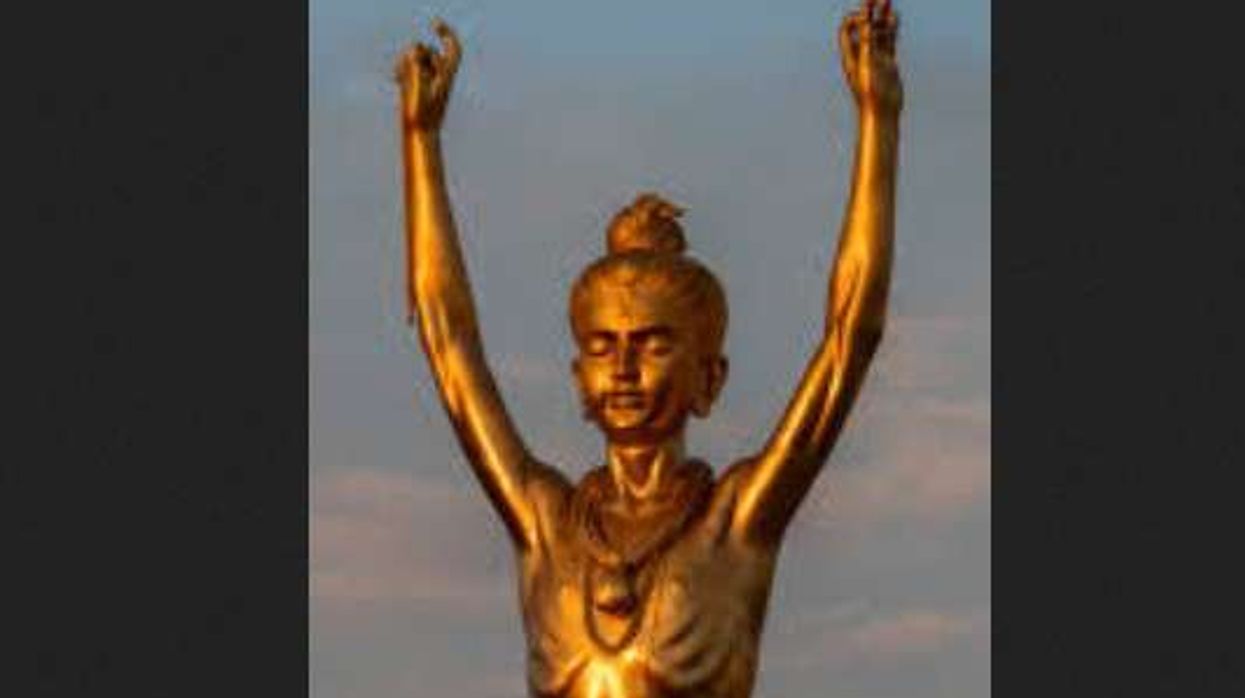Sadiq Khan: Bring back police enforcement on mask wearing
More south Asians will catch and die from Covid during the traditional winter health crisis unless the government toughens its stance on vaccinations and mask wearing in public places.
That is the warning from the British Medical Association, the London mayor, and senior Conservative Westminster insiders.
Analysis by Eastern Eye suggests that since the first national lock down on 29 March 2020 and the end of October, on average, 11 south Asians died from the pandemic every day.
In exclusive interviews, Dr Chaand Nagpaul and Sadiq Khan have told Eastern Eye that they are especially concerned for vulnerable minority groups.
“Last winter there were restrictions, there were national tears of lockdown, and people weren't mixing,” said the BMA chair.
“Now that they are mixing much more, we won't just see increases in Covid infection, but we'll see much more flu, we'll see much more respiratory illness spreading from person to person, and that will add pressure on the NHS. So, I am worried.
“There seems to be almost a mindset amongst the population that that Covid is behind us.
“It's important that there are some measures where infection control does take place to reduce spread of both Covid but other viral infections, and that doesn’t mean that we need to lock down society, far from it.
“But if you are in a taxi, it's important for both you and the cab driver to wear a mask just to reduce the infection is currently spreading.
Compulsory masks
Analysis for Eastern Eye reveals that despite intense and targeted campaigns by the government, by the end of October more than one in four south Asians (27 per cent) were still not double jabbed, and they were therefore not fully protected.
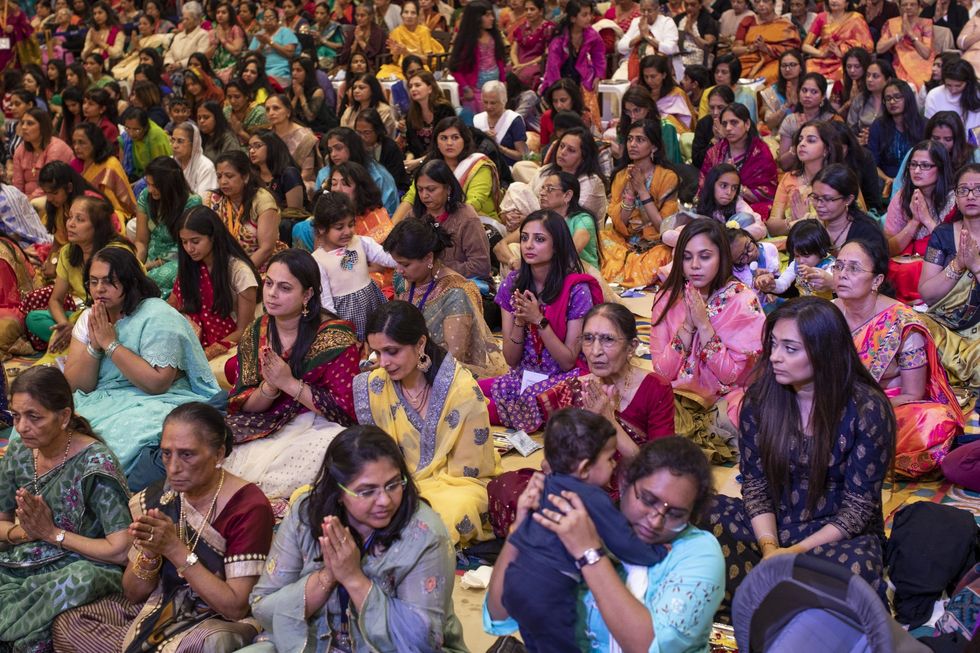
Figures from NHS England show that as of 28 October 2021, 91 per cent of Indians living here, who had their first dose, have had a second one.
This compares to 87 per cent Bangladeshis and 84 per cent among Pakistanis.
London mayor, Sadiq Khan, said the government had to implement the government’s so-called Plan B immediately.
“They should be making it compulsory, with enforcement, to wearing face masks on public transport.
“At the moment, we can't use the police or British Transport Police to enforce that compulsory facemask wearing on public transport.
“The government should reverse the decision made on the 19 July.
“The government should improve ventilation in schools because we want to make sure children are not catching the virus in school and taking it back home and giving it to their family.
“The government should give more support for those who are still isolated because, what we do know is, the lack of sick time leads to people perversely risking their own safety, their family’s safety by going to work to get money to put food on the table and pay for a roof over their head. That's why it's so important.
“The government doesn't need to wait for the conditions that require Plan B to do some of the measures now to avoid Plan B being needed.”
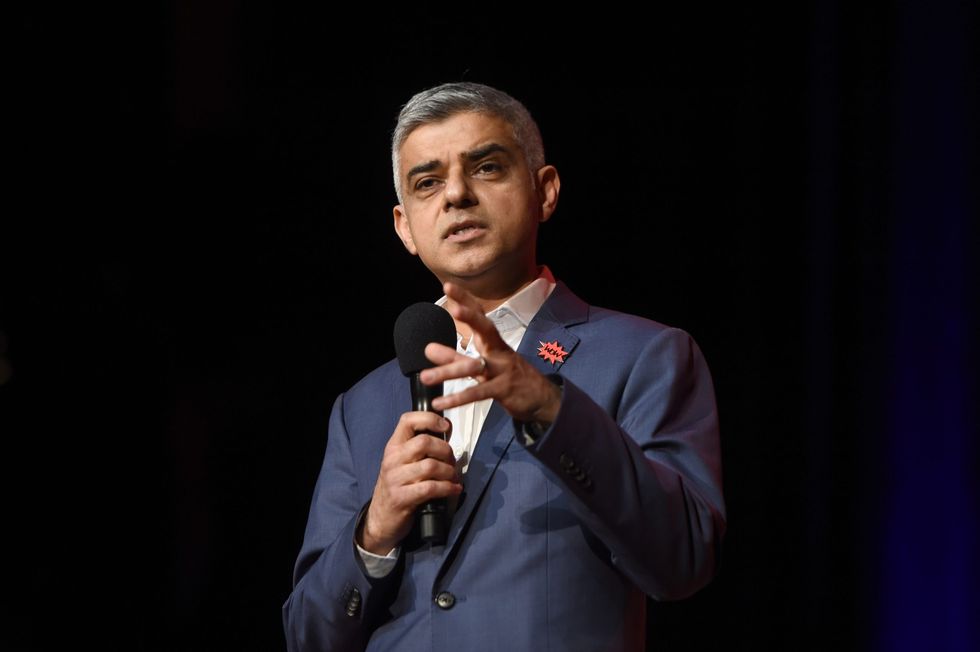
But ministers such as the chancellor, Rishi Sunak, said the data did not support “immediately moving to Plan B”.
Plan B
So, what is Plan B?
According to the government’s website, it includes:
- “introducing mandatory vaccine-only COVID-status certification in certain settings” [vaccine passports]
- “legally mandating face coverings in certain settings”
One senior Tory south Asian parliamentarian said it was now time to act.
“If you look at what Plan B is, the two most important things of it are guidance on working from home, which frankly people know how to do, and warning masks,” they told Eastern Eye.
“I don't think that's a massive burden on individuals to dial that up.
“If you look at the comparisons in continental Europe, and I've had people from places like France and Germany telling me that the adherence to mask wearing, whether it's on public transport or public places or places or work, is just far more compliant than in the UK.”
Eastern Eye has also tracked the numbers of deaths of south Asians from Covid since the first lock down in March 2020 to the end of October 2021.
The data reveals upward trends in deaths in April 2020, just after the first national lock down; over the winter crisis [December 2020 to the end of February 2021]; and after “Freedom Day” on 19 July 2021.
“I'm extremely worried about the coming few months because we have an NHS that has got three pressures all converging at the same time,” the BMA chair, Dr Chaand Nagpaul told Eastern Eye.
“The first is the backlog of care. There are 5.6 million patients who are on waiting lists.
“As a GP, they're increasingly coming through our doors just trying to find out when they will be seen.
“There are about 290,000 people waiting more than 12 months, and they don't know when they're going to be treated.
“So, a lot of pressure being put on trying to treat people who've been waiting for far too long, and that's before you consider that we're still seeing numbers of patients with Covid being hospitalised at levels higher than any other comparator European nation.”
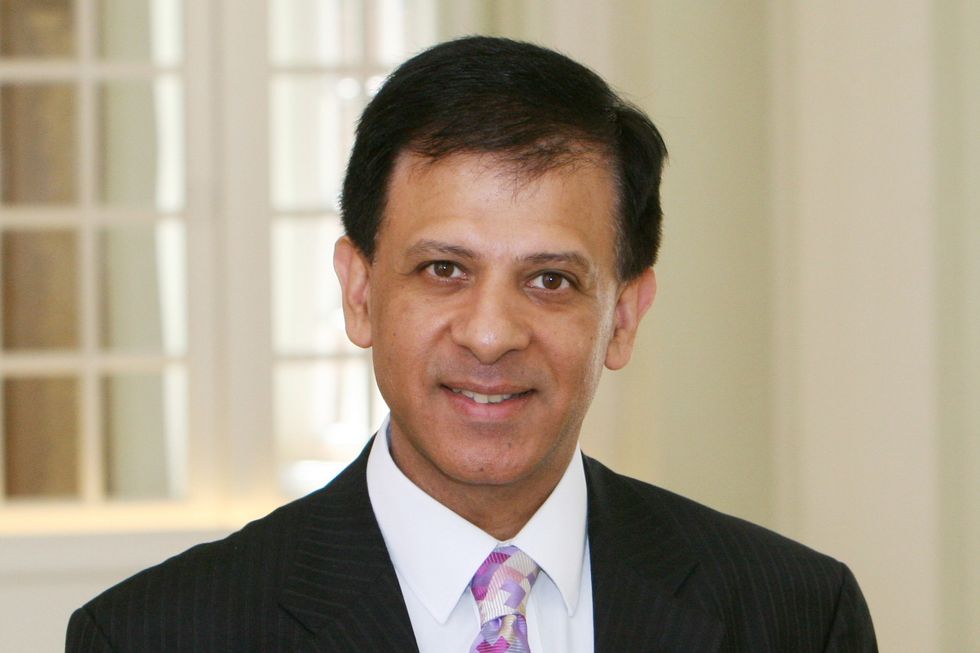
Vaccine uptake
The government, he said, must avoid another national lock down.
“Ultimately, any government needs to do what is right. If you reach a situation where the infection spirals out of control, if you start to see people dying at high rates, then the government will have to step in to look after the nation's health and to prevent people from suffering, falling ill and dying.
“Now, I hope sincerely, we won't come to that, and there are two key things the government needs to make sure happens.
“The first is we have to be able to vaccinate all of the eligible population as far as we can.
“We know at the moment, there are certain sectors, especially some ethnic minorities, that are not taking up the vaccine.
“What the government must prioritise is the right support, the right messaging, the right enablement, to really help communities recognise that this is actually in their own interest.
“But that will only come with trust.”
It is not clear what will trigger Plan B, but a spike in Covid cases and the pressures on the NHS could do so.
The Gov.UK website states, “If the data suggests the NHS is likely to come under unsustainable pressure, certification may need to be urgently introduced.
“In line with other nationally significant COVID legislation, we would seek to provide a vote in parliament ahead of any regulations coming into force.
“This would be subject to the urgency of the situation and parliamentary timetabling.”
But one senior south Asian Tory Westminster source told Eastern Eye, “Prevarication is your enemy. We shouldn't get into the false dichotomy of lives and livelihoods because they're actually co-correlated, right?
“We know that the less prevalent the circulation of Covid the better the economic performance because it's all about confidence.”
Government response
The government is monitoring the data, but we understand that the prime minister does not think it is time to implement Plan B.
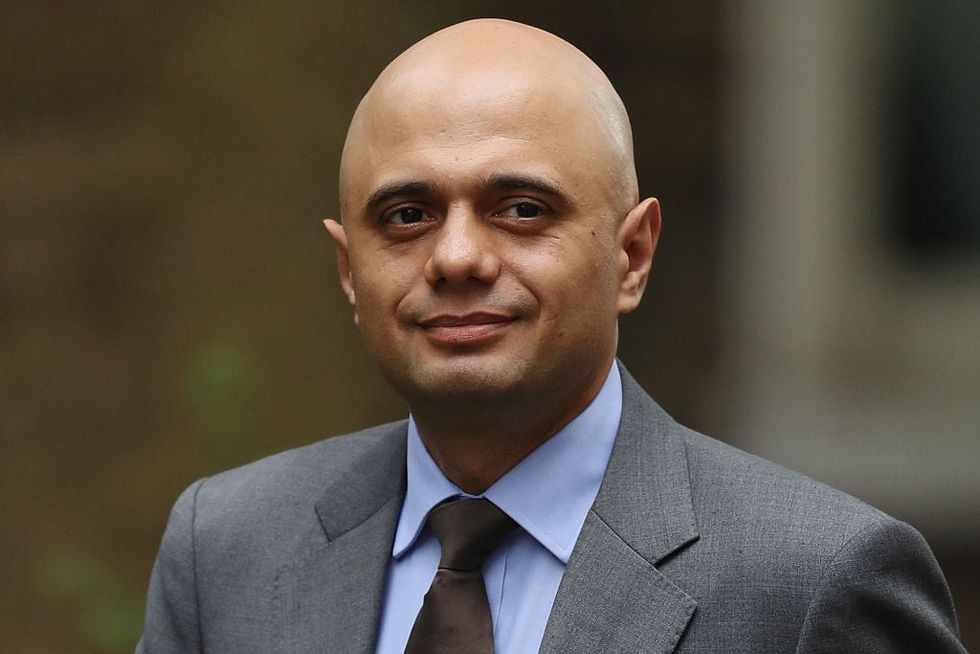
“We know the winter months can be challenging and our phenomenal vaccination programme is building a wall of defence to keep the virus at bay,” said Javid to this newspaper this week (10).
“Vaccines save lives and remain our best weapon of defence against COVID-19 and flu as we head into winter.
“It is vital that everyone, including south Asian communities, take up the offer of vaccines to keep themselves, their friends and family safe.
“Protection from a COVID-19 vaccine can drop after six months, and this is more likely in older and vulnerable groups.
“It has never been easier to top up your immunity. If it has been six months since your second dose and you are eligible for a booster jab you can get your vaccine at a walk-in site or you can pre-book your appointment a month in advance.”
Analysis
Our analysis shows that since the time of the first national lockdown [29 March 2020] until the end of October (31) 2021, 6,512 south Asians have died from Covid. That is an average of 11 every day.
Deaths were highest during April 2020 (1406) because the government's COVID-19 dashboard records deaths “within 28 days of a first positive laboratory-confirmed test”. So, those who contracted the virus did so before the lock down.
In May, the total number of deaths recorded was 312. That means those who caught Covid in April, one month after lock down, and died went down by almost 80 per cent.
In December the government rolled out its vaccination programme, and month-on-month the number of south Asian deaths reduced dramatically; 2,291 between March and October 2020 to 787 in the same period in 2021, a cut of almost two-thirds.
Winter pressures
The government has a “winter plan” to deal with pressures on the NHS. It starts at the end of November and lasts until the end of February.
It is often known as the “NHS winter crisis” because hospitals, GP surgeries and care homes are often under the most pressure during this time.
During last winter, 3076 south Asians perished owing to Covid. The government relaxed its rules for five days during Christmas.
Using the 28-day rule, those who caught and succumbed to the virus would most likely have been registered in the third and fourth weeks in January. Our analysis suggests recorded deaths peaked on 24 January at 426.
But in the run up to Christmas, seen in the total January figures, 1722 south Asians who caught Covid died.
Health disparities
“We know that Covid affects south Asian communities disproportionately,” Dr Chaand Nagpaul, chair of the BMA told Eastern Eye.
“They are more likely to test positive for Covid, become severely ill and die, than any other minority ethnic group.
“At a time when infection is running rampant, I am very concerned that it will be south Asian communities who once again suffer worse outcomes.
“Racial disparity has been a tragic feature of this pandemic, and unless the Covid infection rates are reduced, this will persist.
“If the UK government truly believes in addressing inequalities, clear communication must be matched with clearer rules.
“It must now do everything in its power to implement mandatory mask wearing, physical distancing and better ventilation in high-risk settings, and increase the uptake of first and second vaccine doses, as well as boosters.
“Without the UK government stepping up, it is tragic to think that south Asian communities will continue to suffer the consequences of inaction.”
More south Asians are protecting themselves by taking the two Covid vaccinations.
Even so, one in four remains unprotected.
At 84 per cent, British-Pakistanis remain the lowest south Asian group to be fully protected.
“The pandemic has highlighted the health inequalities, which we knew that were there,” said one Conservative south Asian senior parliamentarian.
“But it's exposed minorities to a much greater extent.
“The biggest service we can do the community is actually go after these health inequalities systematically, and they're there everywhere you look.
“We've got to spotlight them and see if we can come up with practical ways to close the gaps.”
The government said it had provided record investment to the NHS to tackle the backlog and recover services affected by the pandemic.
It said that it had ploughed in an extra £2 billion this year.
“This is a national effort,” said the health secretary, Sajid Javid.
“More than 10 million people in the UK have received vital top-up vaccines, boosting their protection and helping to reduce the pressure on the NHS, and we’ve seen record numbers of people booking in for their jab this week.
“So, to anyone who is eligible for a vaccine but still hasn’t yet taken up the offer, it is never too late to come forward and book yours.
“It could save your life and keep your family safe from the virus.”





